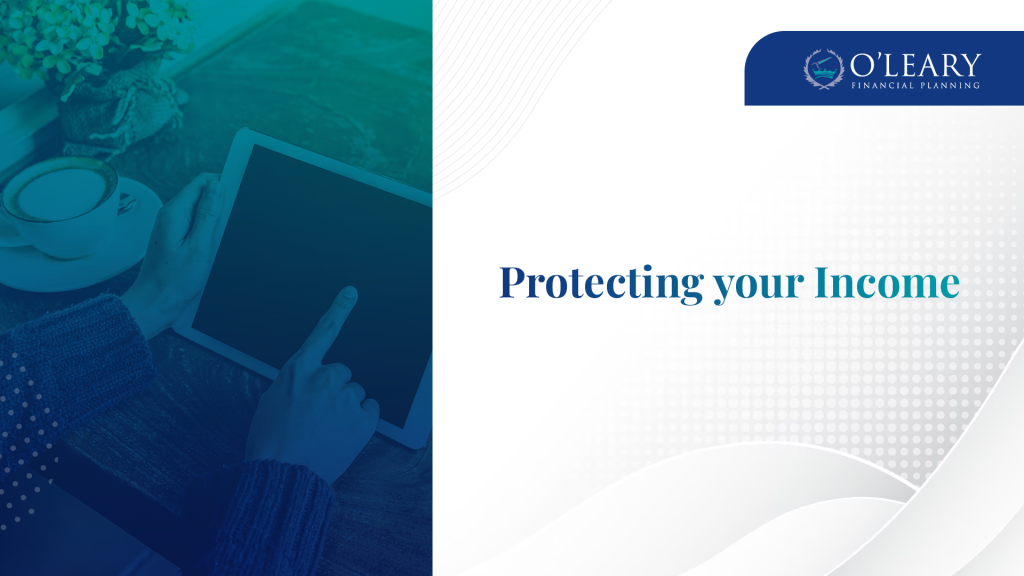Professionals are Failing to Protect their Biggest Asset; Themselves!
With years of education behind them, and years of earning potential in front of them, professional individuals are a valuable commodity. But why are so few protecting themselves – financially? Many professionals are self-employed, adding another layer of financial responsibility to the equation. Despite their significant insurance needs, many small business owners are also failing to protect themselves and their families with adequate insurance. So if they know they’re not properly covered, why aren’t they doing something about it? Think about the sort of money you’d lose if you couldn’t work for a few months. Or worse, if you could never work again. It certainly helps put the cost of insurance into perspective. Have you thought about how would go about protecting your income?
Why it’s important to protect your Income
Have you ever thought about how your family would cope financially if anything happened to you and you could no longer work? Employers aren’t obliged to pay sick leave and
the State Illness Benefit is minimal – €203 a week or €337.70 with an adult dependant.
Your income is your most valuable asset yet according to Aviva’s 2017 Report on Protecting Our Families less than 50% of people have taken steps to protect it. Too many people could find themselves financially vulnerable if they lost their main source of income. While it’s not something any of us likes to think about, we need to be realistic when it comes to protecting our income. Income Protection replaces some of your regular income, giving you financial support for as long as it takes to get back on your feet.
Take some time to review your own finances by considering the following:
Be Informed.
Look at how much your earnings and/or your spouse’s earnings are worth to the household. Calculate your monthly outgoings such as your mortgage, car loan, house insurance, utilities, groceries, education, etc that are supported by your income. Then work out how much of a shortfall there would be if one of your incomes was stopped. Could you manage?
Get Saving.
Consider how you will cover any sudden loss of income, even if it’s only temporary. You should have the equivalent of 3 months’ salary in your savings account to cover your outgoings should your income suddenly stop. Consider an online savings account, easy access savings plan, or term deposit.
Get ahead on your mortgage and home loan repayments by the equivalent of 3 months’ salary. Build a safety net for your earnings as well as reducing the interest you pay. Is this tax-free? Check with your mortgage provider that you can draw down or offset your mortgage.
Life Cover.
If you have a mortgage and/or you are the main breadwinner in the family, you should have life cover to offset your debts and funeral expenses at the very least. Even if you are not the breadwinner you may need this. Consider who would look after the children while your partner works? How would they pay for this?
Income Protection.
Income Protection Cover will protect your lifestyle in the event of you becoming seriously ill or sustaining a long-term injury. It provides a replacement income until you get back on yout feet so you can continue to meet your monthly financial commitments.
Make a Will.
Make sure to draw up a will. You should also keep and update a list of all your assets and keep in a safe place. Get it done and save your loved ones the headache when you’re gone.
Power of Attorney.
It’s a good idea to nominate someone to carry out a power of attorney on your behalf should you become incapacitated. You can set up a Power of Attorney any time during your lifetime when you are in good mental health. This allows another specially appointed person to take action on your behalf if you are absent, abroad, or incapacitated through illness.
Talk to your Family.
Simple things such as knowing where to find the combination to the safe, internet passwords, personal papers and bank accounts details, your will, etc should be disclosed to at least one family member. Just in case anything happens to you.
You should speak to a financial adviser and review all policies annually, not only for expert insight but to ensure you’re not overpaying for protection.

